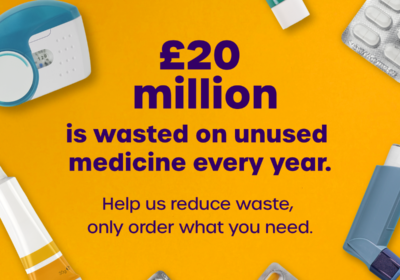NHS England wants to reduce the number of targets, most of which have been routinely missed in recent years, from nine to three. It says the move aims to catch cancers earlier.
They say the plan is backed by leading cancer experts and will simplify the “outdated” standards.
But the head of the Radiotherapy UK charity said she is “deeply worried”.
Pat Price, who is also an oncologist and visiting professor at Imperial College London, said current performance was “shockingly bad”, and while too many targets could be disruptive, “the clear and simple truth is that we are not investing enough in cancer treatment capacity”.
The changes have been under consultation since last year, and an outcome is expected within days. NHS leaders are understood to be keen to press on with the plan as first announced – but it is still subject to final approval by Health Secretary Steve Barclay.
Speaking to BBC Breakfast, Mr Barclay said: “What we have is a consultation at the moment with leading clinical figures in the cancer world and with the cancer charities asking whether the checks we have got are driving the right outcomes in terms of cancer survival or whether there are better ways of measuring those.
“This is something led by clinicians working in cancer – it is not something being imposed by the government.”
Three targets are set to be kept:
- diagnosis of cancer within 28 days of referral
- starting treatment within two months of an urgent referral
- starting treatment one month after a decision to treat.
Six other targets, such as a two-week wait for a first consultant appointment, will be dropped.
An NHS England spokesperson said: “By making sure more patients are diagnosed and treated as early as possible following a referral and replacing the outdated two-week wait target with the faster diagnosis standard already being used across the country, hundreds of patients waiting to have cancer ruled out or diagnosed could receive this news faster.”
They added the changes will allow more patients to be referred “straight to test” and enable the wider use of diagnostic technologies like artificial intelligence.
Labour shadow health secretary Wes Streeting accused the Conservatives of creating a cancer care crisis and leaving patients waiting “dangerously long”.
“Sunak should focus on cutting waiting times, not cutting standards for patients,” he told the Sunday Times.
According to the latest figures, 59.2% of cancer patients in England who had their first treatment in June after an urgent GP referral had waited less than two months.
This was up slightly on the previous month, but still well below the target of 85% which was last met in 2015.
‘Years of underinvestment’
Naser Turabi, Cancer Research UK’s director of evidence and implementation, said of the figures last week: “Despite the best efforts of NHS staff, it’s incredibly worrying that cancer waiting times in England are once again amongst the worst on record.”
He blamed the missed targets on “years of underinvestment” by the government and called for more cancer staff and a clear strategy.
“Without bold action, more people will miss out on lifesaving services,” he said.
Prime Minister Rishi Sunak has made cutting waiting lists one of his five priorities. His pledge only refers to waiting lists in England, because Scotland, Wales and Northern Ireland manage their own health systems.
However, the overall number of patients waiting for treatment in England rose from 7.47m in May to 7.57m in June.
NHS delivers another record year of lifesaving cancer checks for patients
Meanwhile, NHS England announced today that the number of people receiving lifesaving checks for cancer in the last year has hit nearly three million (2.92m) – more than any other year on record.
In June alone, over a quarter of a million people (261,000) were seen for urgent cancer checks by the NHS, which is well over double the number of people checked in the same month a decade ago (101,592).
A record 335,000 people have also started treatment for cancer in the last year (July 2022 – June 2023), up by over 20,000 on same period before the pandemic (July 2018 – June 2019).
With the NHS seeing and treating more and more people for cancer, and thanks to efforts to bring more people forward for checks sooner, a higher proportion of people than ever before are being diagnosed at an earlier stage.
Recent data shows that in the year 2022-2023, a higher proportion of cancers than ever before were diagnosed at an early stage, before they’d spread – 58% of cancers were diagnosed at stage one or two (over 110,000 patients) compared with around 56% prior to the pandemic.
Ensuring people are diagnosed with cancer at an early stage is a key priority for the NHS as treatments are more likely to be successful, giving people a greater chance of surviving the disease.
This record year of checks comes despite NHS staff managing one of the busiest and most challenging winters and the most significant period of industrial action the health service has ever experienced.
To meet the increasing demand for cancer services, the NHS is investing billions in diagnostics and treatments, including through the expansion of dozens of community diagnostic centres across the country, mobile lung trucks, and cancer symptom hotlines.
Thanks to advances in treatments and technologies, cancer survival rates have also been rising steadily over the last decade.
Professor Peter Johnson, NHS England National Clinical Director for Cancer, said: “Almost three million people have had urgent cancer checks in the last year – the highest year on record – which is a testament to NHS staff who have done this despite significant pressures and industrial action.
“We have lots more to do, but we won’t stop in our efforts to ensure people are seen and diagnosed as early as possible, and as it always has, the NHS will continue to invest in the latest technology and treatments for patients, from trials of new blood tests to cancer vaccines.
“It’s vital people continue to come forward, so if you have a sign or symptom that you’re worried about, such as a lump, a persistent cough, or prolonged discomfort, please come forward – getting checked out could save your life”.
Health Minister Will Quince said: “Record numbers of cancer checks means that almost three million people have received care that could save their lives.
“The biggest factor in people surviving cancer is the stage at which it’s diagnosed and thanks to the efforts of the NHS to bring more people forward for checks sooner, we’re already seeing major progress, with a higher proportion of people than ever before being diagnosed at an earlier stage.
“We are also making progress to deliver on our priority to cut waiting lists and ensure people get the care they need quicker.”
Since 2021, the NHS has rolled out 108 community diagnostic centres (CDCs) across England to offer more scans, checks and operations as soon as possible. Latest data shows that CDCs have carried over four million additional checks for cancer and other major diseases.
The NHS Long Term Plan has an ambition to see 55,000 more people each year surviving their cancer for five years or longer by 2028 and three quarters of people with cancer being diagnosed at an early stage by 2028.
The NHS is developing a Cancer Vaccine Launch Pad to identify thousands of NHS patients suitable for cancer vaccine trials, with the first patients set to be recruited this autumn.
Common symptoms of cancer include lumps or bumps, unexplained weight loss, bloating, fatigue, itchy or yellow skin, and changes in bowel habits.






